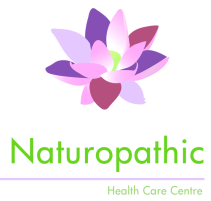|
DR. Chantell Groenewald
M. Tech Hom (UJ) What is PCOS? Polycystic ovarian syndrome is the most common hormonal disorder affecting women of child bearing age. It is a chronic disease affecting the functioning of the ovaries causing excessive male hormones to be secreted and is characterized by:
What causes of PCOS? The cause for PCOS is poorly understood, but genetic and environmental factors seem to play an important role. There is a hormonal dysregulation at play, which includes
What are the diagnostic criteria for PCOS? The current diagnostic criteria for PCOS is at least two of the three following characteristics:
What are the signs and symptoms of PCOS? The signs and symptoms of PCOS varies from one woman to the next. Here is a list of the most common symptoms:
What are the natural treatment protocols for PCOS? 1. Losing weight This is vital in controlling insulin sensitivity, reversing insulin resistance and metabolic syndrome (triad of elevated insulin, cholesterol and blood pressure) and will aid in controlling the production of excess androgens by the ovaries. A carefully selected diet may assist in weight loss. There are various options including low carbohydrate, intermittent fasting, anti-inflammatory and anti-allergic eating programs to choose from. The correct eating plan can reduce inflammation and help control insulin levels and manage dysregulation of hormones. 2. Controlling stress Excess cortisol produced by the adrenal glands during periods of high stress has a profound effect on our hormones. Long term expose to higher than normal levels of cortisol translate into insulin resistance, weight gain and hormonal imbalances. Getting enough sleep is also vitally important in regulating cortisol levels. 3. Supplements There are various supplements that can aid in controlling blood sugar, reducing excess androgen production and balancing female hormones. A qualified practitioner can prescribe the correct supplements to help manage each individual case. Some supplements that have been suggested to benefit cases of PCOS include: I.Chaste Tree: May be beneficial in regulating erratic ovulation, acne, oligomennorrhoea and amenorrhoea, ovarian cysts and assist in sleep maintenance. II.Inositol: specifically, myo-inositol, is a vitamin like substance found in many plants and produced in our bodies. There are various studies that illustrates the beneficial effects of myo-inositol in the treatment of PCOS. III.Vitamin D: Vitamin D deficiency effects an estimated 60-70% of people. The only way to test if you are vitamin D deficient is by doing a blood test (supplementing without confirmed deficiency is dangerous and should be done under the supervision of a primary health care physician). Vit D plays an important role in maturation of eggs and ovulation. IV.Folic acid, omega 3, calcium, magnesium, zinc, n-acetylcysteine and chromium are a group of supplements that may be beneficial in the treatment of PCOS. 4. Homeopathy There are various case studies that demonstrates the beneficial effects of specific homeopathic remedies to aid in the treatment of PCOS. Following a consultation, a homeopath can prescribe a remedy that suites each individual case. 5. Exercise Moderate exercise assists in both stress management and weight loss, which aids in controlling cortisol as well as insulin levels. PCOS is a silent disorder with an estimated 50% of woman being not being diagnosed correctly. The potential long-term health risks of PCOS include sleep apnoea, endometrial cancer, fatty liver disease, type 2 diabetes, cardiometabolic disease and more. There are several ways to naturally balance our hormones and reverse the effects of PCOS
0 Comments
Leave a Reply. |
AuthorsDr. Marike de Klerk Categories
All
|
All rights reserved Naturopathic Health Care Centre
ADDRESS: No 13 Hazelwood Road, Hazelwood, Pretoria
TELEPHONE: 012 460 9216
PAIA Manua
Website design and digital marketing by Plan Me Pretty (PTY) Ltd
TELEPHONE: 012 460 9216
PAIA Manua
Website design and digital marketing by Plan Me Pretty (PTY) Ltd

 RSS Feed
RSS Feed